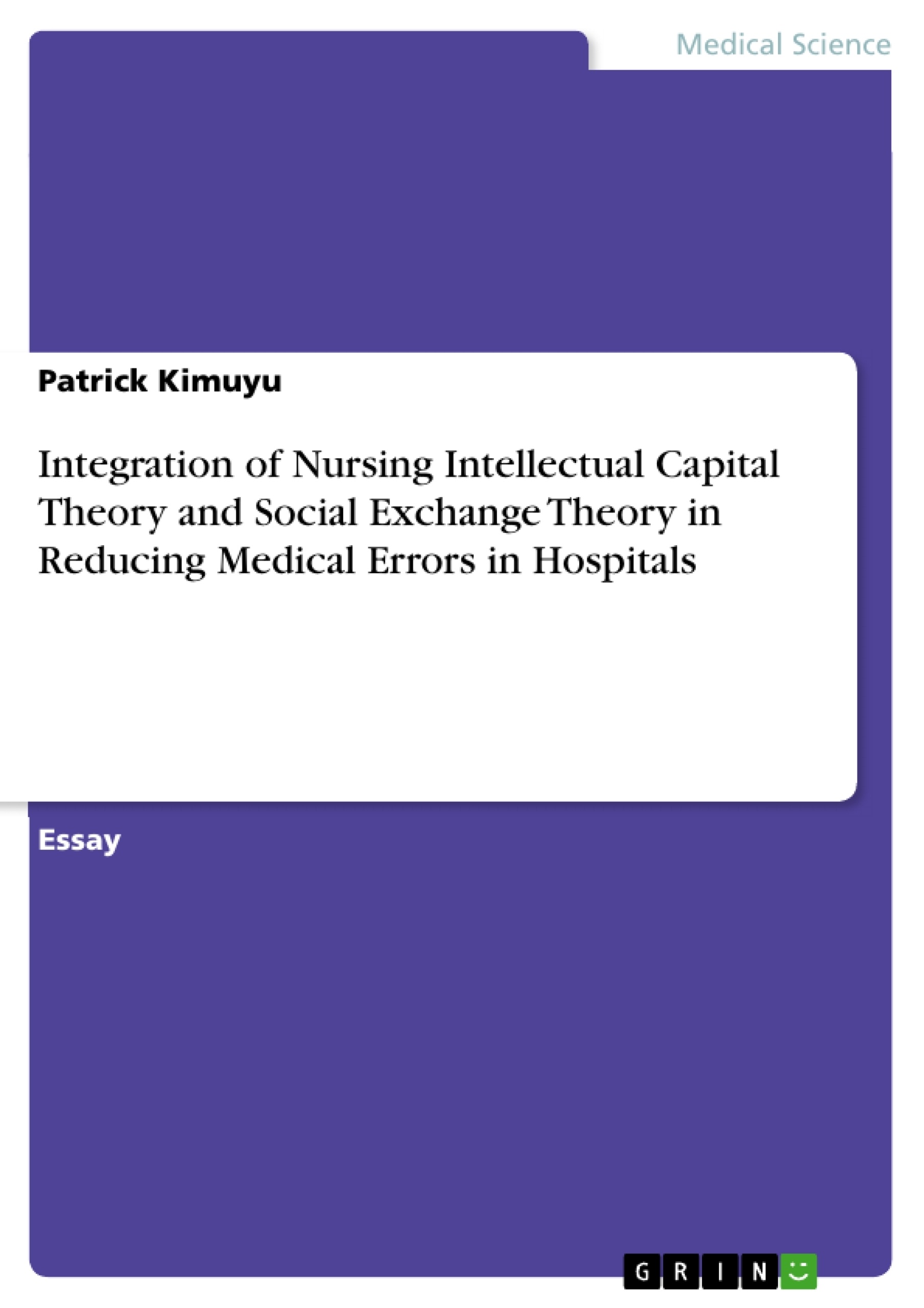In retrospect, nursing practice seems to have experienced a remarkable evolution from the classical nursing to evidence based practice. This evolution has expanded the scope of nursing and improved the quality of care to patients. Of great importance is the provision of safe and quality care whose ultimate results are high patient outcomes. As envisaged in core nursing theories and bioethical principles, healthcare is meant to reduce the burden of disease and improve the quality of life of patients. This been the focus in nursing practice, education and research, and the outcome is a transformed nursing practice. Based on this objective, new interventions and nursing guidelines have been developed to promote the delivery of safe and high quality care. Despite this remarkable advancement in nursing care, a number of medical issues have remained as significant barriers in healthcare. Of concern is the problem of medical error which has become a compromise to safe and quality care across the continuum of healthcare system. In principle, medical error is defined from the medical perspective as actions which are done by healthcare providers that can lead to the occurrence of adverse events.
In other words, medical error is simply a preventable outcome adverse resulting from inappropriate action by a healthcare provider. As such, it is apparent that the issue of medical error has an immense implication to nursing practice. Therefore, this report seeks to provide a focused analysis of a mid-range theory and a borrowed theory which when integrated can provide an appropriate solution to medical errors.
Inhaltsverzeichnis (Table of Contents)
- Introduction
- Summary of the Problem and the Potential Middle-Range Theory
- Middle-Range Theory: Nursing Intellectual Capital Theory
- Borrowed Theory: Social Exchange Theory
- Origins of Social Exchange Theory
- Previous Applications of Social Exchange Theory
- Applying Social Exchange Theory in Reducing Medical Errors
- Integration of Nursing Intellectual Capital Theory and Social Exchange Theory in Reducing Medical Errors
- References
Zielsetzung und Themenschwerpunkte (Objectives and Key Themes)
This report explores the potential of integrating Nursing Intellectual Capital Theory and Social Exchange Theory to address the problem of medical errors in the healthcare setting, particularly in nursing practice. The report aims to provide a focused analysis of these theories and demonstrate how their integration can contribute to reducing medical errors and improving patient safety.
- The impact of medical errors on healthcare and patient safety
- The role of nursing intellectual capital in reducing medical errors
- The application of social exchange theory in healthcare settings
- The potential for integrating these two theories to enhance nursing practice and patient outcomes
Zusammenfassung der Kapitel (Chapter Summaries)
- Introduction: This chapter provides an overview of the evolution of nursing practice and the importance of safe and quality care. It highlights the problem of medical errors and its impact on healthcare.
- Summary of the Problem and the Potential Middle-Range Theory: This chapter examines the prevalence and consequences of medical errors, emphasizing their negative impact on patient safety and the need for effective interventions. It introduces the Nursing Intellectual Capital Theory as a potential solution to the problem.
- Middle-Range Theory: Nursing Intellectual Capital Theory: This chapter delves into the theoretical framework of the Nursing Intellectual Capital Theory, outlining its core concepts and its relevance to reducing medical errors. It highlights the importance of nursing human capital and nursing structural capital in promoting safe and effective nursing practice.
- Borrowed Theory: Social Exchange Theory: This chapter introduces Social Exchange Theory as a relevant framework for understanding social interactions in healthcare settings. It explores the key concepts of the theory, such as cost, rewards, and social behavior.
Schlüsselwörter (Keywords)
Medical errors, nursing intellectual capital, social exchange theory, patient safety, healthcare quality, nursing practice, evidence-based care, human capital, structural capital, social interactions, cost, rewards, relationships, healthcare providers, organizational outcomes.
- Arbeit zitieren
- Patrick Kimuyu (Autor:in), 2017, Integration of Nursing Intellectual Capital Theory and Social Exchange Theory in Reducing Medical Errors in Hospitals, München, GRIN Verlag, https://www.hausarbeiten.de/document/384454


